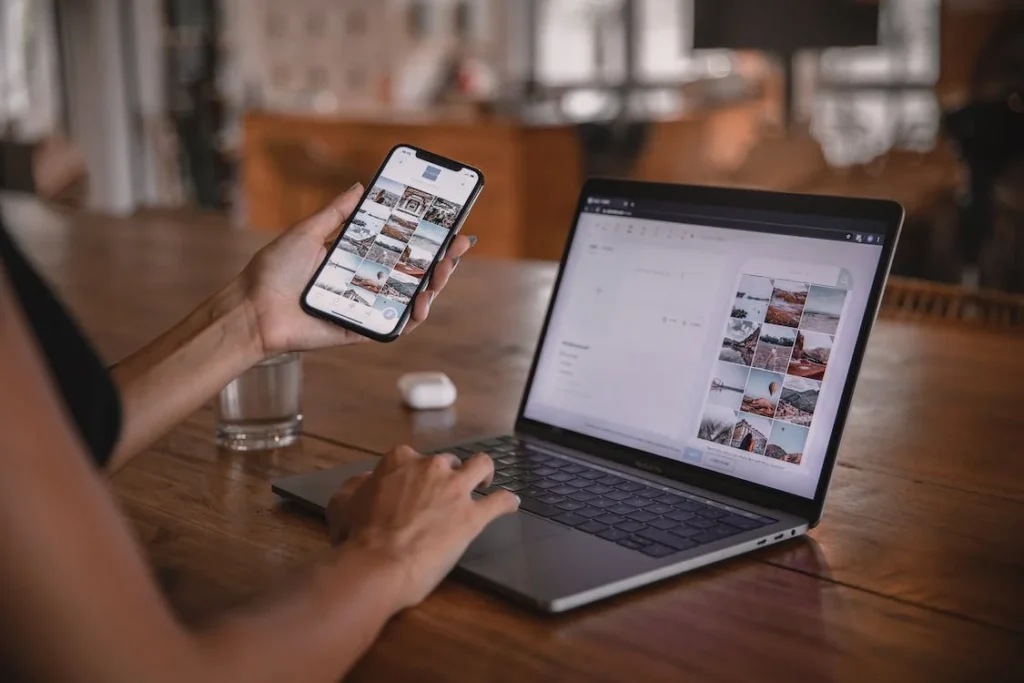This Article has been revised, edited and added to, by Poulomi Chakraborty.
- Evaluating Agency Expertise and Experience
- Assessing Agency Transparency and Communication
- Leveraging Advanced Technologies and Tools
- Cultural Fit and Shared Values
- Navigating Industry Expertise and Specialization
- Analyzing Scalability and Future Growth
- Commitment to Ethical Standards and Compliance
- Effective Negotiation Strategies for Partnering with an Influencer Marketing Agency
- Strategies for Maintaining and Optimizing Ongoing Relationships with an Influencer Marketing Agency
- Conclusion: Sustaining Success with Your Influencer Marketing Agency
In the fast-paced world of digital marketing, aligning with the right influencer marketing agency can be a game-changer for your brand. It’s about finding a partner who not only understands your market and goals but also possesses the expertise to amplify your brand’s message effectively through the right influencers. Let’s dive into what makes an agency stand out and how to ensure their approach aligns perfectly with your marketing strategy.
Evaluating Agency Expertise and Experience

One of the first and most crucial steps in choosing an influencer marketing agency is evaluating their level of expertise and the breadth of their experience. Here’s how diving deep into an agency’s background can make a big difference in your selection process.
Understanding Their Track Record
A solid track record is an immediate indicator of an agency’s capability. It’s not just about the number of years they’ve been in the business but also about the quality of campaigns they’ve managed.
Look for an agency that has consistently worked with brands similar to yours or has experience in your industry. This background suggests that they understand your target market and the specific challenges and opportunities within your niche.
Reviewing past campaigns gives you insights into their strategic depth and creative capabilities. Successful campaigns indicate a strong grasp of effective influencer partnerships and innovative content strategies. Furthermore, analyzing these campaigns helps you gauge whether their style and tactics align with your brand’s identity and goals.
Analyzing Their Influencer Network
The strength of an agency’s influencer network can be a major deciding factor. An effective agency doesn’t just have a vast network, but one that is diverse and aligned with various market segments.
This diversity ensures that they can match your brand with influencers who genuinely resonate with your target audience, enhancing the authenticity and effectiveness of your campaigns.
Inquire about the process they use to vet influencers. A good agency will have rigorous criteria for selecting influencers, focusing not only on follower count but engagement rates, audience demographics, and alignment with brand values. This meticulous selection process is critical as it directly impacts the relevance and success of your influencer collaborations.
Assessing Their Strategic Approach
How an agency plans and executes influencer marketing campaigns says a lot about their potential to handle your needs. Discuss with potential agencies how they tailor strategies to meet client objectives. Are their approaches innovative and adaptable to changing market conditions? Do they use data-driven insights to refine and optimize campaigns?
A competent agency should be able to articulate how they measure campaign success. This includes defining key performance indicators (KPIs) like engagement rate, reach, conversion rates, and return on investment (ROI).
Understanding their strategic approach not only helps you assess their proficiency but also ensures that their methods align with your business goals and expectations.
Choosing the right influencer marketing agency requires a thoughtful evaluation of their experience, influencer network, and strategic approach. This careful consideration ensures that you partner with an agency capable of propelling your brand forward in the crowded and ever-evolving digital landscape.
Assessing Agency Transparency and Communication

When navigating the realms of influencer marketing, transparency from your chosen agency is non-negotiable. A transparent agency will foster trust, ensure smoother collaborations, and provide clear insights into how your investments are performing.
Importance of Clear Communication
Effective communication is the bedrock of any successful partnership. An agency that communicates clearly and promptly should be a priority. This includes regular updates, easy accessibility for queries, and straightforward explanations of strategies and results.
You should feel that the agency is an extension of your own team, with open lines of communication and a commitment to understanding your brand’s needs and expectations.
Look for agencies that offer a dedicated account manager who acts as your point of contact. This person should not only keep you informed about ongoing activities but also be proactive in suggesting improvements and adaptations to your strategy based on emerging trends and performance data.
Transparency in Pricing and Contracts
Understanding the financial aspects of your agreement is crucial. The right agency will be upfront about costs, providing a clear breakdown of fees, what each fee covers, and any additional charges that might occur. This clarity helps you budget effectively and compare offerings objectively.
Similarly, a transparent approach to contracts is essential. Ensure that the agency provides contracts that clearly outline the scope of work, deliverables, timelines, ownership of content, and termination clauses. This documentation protects both parties and clarifies expectations, preventing potential disputes.
Evaluating Transparency in Reporting and Metrics
Transparency begins with how an agency reports its results and handles metrics. A transparent agency will not only provide regular, detailed updates on campaign performance but will also be honest about what’s working and what isn’t.
They should offer insights into both successes and setbacks with a clear explanation of the data behind these results. This level of openness allows you to make informed decisions and helps build trust.
When engaging with an agency, inquire about their reporting tools and frequency. You should expect to receive comprehensive reports that align with the campaign’s key performance indicators (KPIs).
These reports should be easy to understand and offer actionable insights, not just raw data. Additionally, check if the agency is willing to incorporate your feedback into the reporting process, allowing for customized reports that better meet your needs.
Strategic Meetings and Feedback Loops
Beyond regular updates, strategic meetings play a critical role in maintaining a healthy relationship with your agency. These meetings should not only review performance but also strategize on future actions and revisit campaign goals to ensure alignment with your business’s evolving needs.
A proactive agency will schedule these strategic sessions regularly and prepare meticulously, showing a deep engagement with your brand.
Additionally, creating a structured feedback loop can enhance communication efficiency. This could involve periodic reviews where both parties are encouraged to provide feedback on what is working and what can be improved.
This openness not only helps in adjusting strategies quickly but also in fostering a relationship based on mutual respect and continuous improvement.
Leveraging Advanced Technologies and Tools

In today’s digital age, the tools and technologies an agency employs can significantly enhance the effectiveness and efficiency of your campaigns.
Utilization of Cutting-Edge Tools
An agency that uses advanced tools for influencer vetting, campaign management, and performance tracking can provide you with a competitive edge. These tools not only streamline processes but also offer deeper insights into campaign performance and influencer effectiveness.
Ask potential agencies about the technologies they use for analytics, reporting, and communication. For example, platforms that provide real-time data can help quickly identify what’s working and what’s not, allowing for timely adjustments to maximize campaign effectiveness.
Data-Driven Decision Making
An agency’s ability to make data-driven decisions is a major advantage. This approach involves analyzing detailed data sets to understand audience behaviors, campaign performance, and market trends. Agencies that prioritize data are usually better at predicting outcomes, optimizing strategies, and delivering results that meet or exceed KPIs.
Integrating Sophisticated Analytical Tools
The right analytical tools can transform how a campaign is tracked and optimized. Advanced analytics go beyond simple engagement metrics to provide deeper insights into consumer behavior, influencer performance, and content effectiveness.
These tools can segment audiences to understand better who is interacting with your content and how these interactions correlate with your sales funnel.
When evaluating an agency, ask about the specific technologies they use for analytics. Do they offer predictive analytics, sentiment analysis, or heat mapping? Can they track a customer journey from influencer engagement to final purchase? Agencies equipped with sophisticated analytical tools can tailor campaigns more effectively and dynamically adjust strategies based on real-time data.
Employing Content Management Systems
A robust content management system (CMS) can streamline the creation, approval, and distribution phases of your influencer content. These systems help ensure that content aligns with your brand’s standards and campaign goals, providing a centralized platform for scheduling posts and managing interactions across different channels.
Inquire about the CMS capabilities of your potential agency. Can the system handle cross-platform campaigns? Does it allow for real-time content updates and compliance checks? A CMS that offers comprehensive features will support a more organized and controlled campaign execution, crucial for maintaining consistency across various platforms.
Utilizing Artificial Intelligence (AI) and Machine Learning (ML)
Artificial intelligence and machine learning can offer significant advantages in personalizing user experiences and optimizing campaign performance. AI can analyze vast amounts of data to identify trends and patterns that might not be apparent through human analysis alone.
This can include identifying which types of content perform best at different times of the day or which influencers’ audiences are most likely to convert into paying customers.
Ask if the agency harnesses AI and ML in their strategy development and execution. For example, can they use these technologies to predict the best times to post content or to automate responses to common inquiries? This use of technology not only improves efficiency but also enhances the responsiveness and personalization of campaigns.
Advancing with Augmented Reality and Virtual Reality
As technology evolves, so do the opportunities to engage audiences in innovative ways. Augmented reality (AR) and virtual reality (VR) are at the forefront of creating immersive brand experiences. These technologies can be used to bring products to life before a purchase is made or to create engaging brand stories that captivate audiences.
Explore whether your influencer marketing agency has experience with AR or VR campaigns. How have they integrated these technologies into their previous campaigns? What was the audience’s reception? An agency that is skilled at using AR and VR can help you create standout content that can significantly boost engagement and brand recall.
Harnessing the Power of Blockchain
Blockchain technology is starting to make its mark in influencer marketing by enhancing transparency and trust. It can be used to verify the authenticity of transactions and engagements, ensuring that the data you receive is accurate and unaltered.
Discuss with your agency if they have capabilities or partnerships that utilize blockchain for verification purposes. This technology can be particularly useful in preventing fraud and ensuring that engagements and conversions are genuine, providing more reliable metrics for assessing campaign effectiveness.
By ensuring your influencer marketing agency leverages these advanced technologies and tools, you can enhance the sophistication and impact of your campaigns. These technological resources enable more precise targeting, efficient campaign management, and deeper insights, empowering your startup to drive more meaningful and measurable results in the competitive digital landscape.

Related: Check out our free SEO suite

Cultural Fit and Shared Values
Lastly, the cultural fit between your company and the influencer marketing agency can greatly influence the success of your partnership.
Aligning with Brand Values
Choose an agency that resonates with your brand’s values and vision. When an agency truly understands and shares your company’s ethos, they are more likely to find influencers who are a genuine fit, resulting in campaigns that feel authentic to consumers.
Collaborative Spirit
The agency’s culture should also promote collaboration and creativity. A dynamic agency that encourages innovative thinking and is flexible in adapting to new ideas can significantly contribute to the creative process, ensuring that campaigns remain fresh and impactful.
Identifying Core Values Alignment
When assessing potential agencies, the alignment of core values should be a top priority. This goes beyond surface-level compatibility into deeper, value-driven synergies that can significantly influence the authenticity and credibility of your marketing efforts.
Start by clearly defining your own company’s values and then evaluate how well the agency’s work, client interactions, and internal culture reflect similar principles.
Engage in discussions with potential agencies about their company missions, the ethical standards they adhere to, and their long-term vision. How do they handle conflicts or challenges?
What importance do they place on transparency and accountability? Answers to these questions can provide deep insights into whether their values align with yours.
Evaluating Collaborative and Creative Synergies
The ability to collaborate effectively is rooted in shared communication styles, mutual respect, and common goals. Evaluate how the agency approaches collaboration with their clients.
Are they flexible and open to ideas, or do they take a more directive approach? Understanding this can help you predict how well they will work with your team and adapt to your startup’s evolving needs.
Moreover, consider the agency’s creativity and innovation through the lens of cultural fit. Do they encourage out-of-the-box thinking? How do they foster creativity within their team?
Agencies that prioritize a culture of innovation are likely to help your campaigns stand out in the crowded digital space by continuously bringing fresh and impactful ideas to the table.
Assessing Long-term Partnership Potential
For startups, where resources can be limited and the pressure to deliver is high, building a long-term relationship with an influencer marketing agency can offer significant advantages. This includes understanding the nuances of your business, which can lead to more tailored and effective marketing strategies over time.
To assess the potential for a long-term partnership, look at the agency’s history with other clients. How long have their client relationships lasted on average? What do clients say about them in testimonials?
Agencies that maintain long-term relationships are likely to be committed to client growth and satisfaction, which is crucial for startups looking to build stability and consistency in their marketing efforts.
Committing to Mutual Growth and Learning
Choose an agency that views your partnership as a growth opportunity for both parties. This means they should be committed not only to achieving current campaign goals but also to adapting and learning with you as market dynamics evolve.
Such agencies invest in regular training and development for their teams and stay updated on industry trends, which can significantly benefit your campaigns.
During negotiations, discuss how the agency approaches continuous learning and adaptation. What kind of professional development opportunities do they provide their staff? How do they stay ahead of industry trends? An agency committed to learning and evolving can be a valuable asset as your startup scales and navigates new challenges.
By focusing on cultural fit and shared values, startup founders can establish a strong foundation with an influencer marketing agency. This alignment enhances every aspect of the partnership, from strategic alignment and creative output to long-term growth and adaptation, ensuring that your influencer marketing efforts are not only effective but also true to your brand’s identity and values.
Navigating Industry Expertise and Specialization

Choosing an agency that specializes in your specific industry can significantly enhance the relevance and impact of your influencer campaigns. An in-depth understanding of your sector’s nuances, audience behaviors, and competitive landscape is essential for crafting strategies that resonate deeply with your target audience.
Industry-Specific Experience
An agency with experience in your industry will have a clear understanding of the challenges and opportunities unique to your market. They possess insights into what types of influencer collaborations have worked in the past and can leverage this experience to avoid common pitfalls and capitalize on proven strategies. For instance, an agency specializing in fashion will have a different approach and network compared to one focused on technology.
When discussing potential partnerships, ask for case studies or references from similar companies they’ve worked with. This evidence will not only demonstrate their capability but also give you a clearer picture of how they can cater to your specific needs.
Customized Strategy Development
The benefit of working with a specialized agency is their ability to develop customized strategies that align closely with your brand’s goals. They are more adept at identifying the right influencers, crafting messages that speak directly to your audience, and choosing the best platforms based on where your customers are most active.
Analyzing Scalability and Future Growth
As your business grows, your marketing needs will evolve. The right influencer marketing agency should be able to scale their services to accommodate your growing needs.
Scalability of Services
A good agency will offer flexible services that can scale up as your brand expands. Whether it’s increasing the number of influencers, expanding into new markets, or incorporating more sophisticated marketing techniques, the agency should demonstrate the capability to adapt and grow with you.
Ask potential agencies about their experience with scaling campaigns and how they handle the increased complexity of larger operations. This will give you confidence that they can manage your account as you expand, ensuring consistency and quality of service.
Long-term Partnership Potential
Look for an agency that views the relationship as a long-term partnership rather than a series of one-off campaigns. An agency committed to a long-term partnership will invest time in deeply understanding your business and will be motivated to continuously optimize and improve your campaigns for better results.
Commitment to Ethical Standards and Compliance
Influencer marketing is heavily scrutinized for ethical practices, particularly around transparency and disclosure of partnerships. It’s important that the agency you choose adheres to industry standards and legal requirements.
Adherence to Regulations
Ensure that the agency has a strong commitment to ethical practices and is up-to-date with the latest regulations regarding influencer marketing. This includes proper disclosure of sponsored content to maintain transparency with audiences, which is crucial for building trust and credibility.
Maintaining Brand Safety
Partnering with an agency that prioritizes brand safety is essential. They should have processes in place to vet influencers thoroughly, ensuring that their public persona and past content align with your brand’s values and do not pose a risk to your reputation.
Choosing the right influencer marketing agency involves careful consideration of their industry expertise, scalability, commitment to ethical standards, and the potential for a long-term partnership. These factors ensure that you not only start strong but also build a sustainable and effective influencer marketing strategy that grows with your brand.
Effective Negotiation Strategies for Partnering with an Influencer Marketing Agency
Negotiating with an influencer marketing agency is a critical step in forming a partnership that meets your brand’s needs while ensuring value for your investment. Here are key strategies to help you navigate negotiations effectively, ensuring you establish a mutually beneficial agreement.
Define Your Objectives and Budget Clearly
Before entering negotiations, it’s essential to have a clear understanding of what you want to achieve with your influencer marketing campaign and how much you are willing to invest.
This clarity will guide your discussions and help you communicate your needs effectively to the agency. Knowing your budget constraints and campaign objectives also positions you to assess the agency’s proposals more accurately and ensure they align with your marketing goals.
Understand the Agency’s Value Proposition
Each agency will bring its unique strengths and offerings to the table. Take the time to understand what makes a particular agency stand out—is it their extensive network of influencers, their innovative campaign strategies, or their proven track record in your industry? Knowing what the agency excels at can help you leverage their strengths in your negotiations to get the best possible service.
Explore Customization Options
Influencer marketing is not a one-size-fits-all solution. During negotiations, discuss how the agency can tailor their services to fit your specific needs. This might include customization of the campaign’s scale, the specific influencers you want to target, or even the type of content you wish the influencers to produce.
Customization can often lead to more effective campaigns and better ROI, so it’s important to negotiate an agreement that includes flexibility and tailored approaches.
Negotiate Performance-Based Incentives
To align the agency’s interests with your campaign goals, consider negotiating performance-based incentives. These incentives can motivate the agency to go above and beyond to ensure your campaign’s success.
Performance metrics might include specific engagement rates, traffic numbers, or direct sales linked to the campaign. Establishing clear KPIs and incentives based on achieving these KPIs can drive better results and provide a straightforward way to measure the campaign’s success.
Discuss Long-Term Collaboration Benefits
If you’re considering a long-term relationship with the agency, discuss potential benefits that could come with an extended partnership. This might include reduced rates for long-term contracts, first rights to access top-tier influencers, or more extensive campaign planning and support.
Long-term collaborations can also lead to more strategic and cohesive marketing efforts, as the agency gains a deeper understanding of your brand over time.
Review Contract Terms Thoroughly
Once you reach a tentative agreement, make sure to review the contract terms thoroughly. Pay close attention to the scope of work, deliverable timelines, payment schedules, confidentiality clauses, and termination conditions. It’s often beneficial to have a legal professional review the contract to ensure that all terms are clear and that your interests are protected.
Be Prepared to Walk Away
Finally, be prepared to walk away if the negotiations do not meet your expectations or if the agency’s proposals do not align with your marketing objectives and budget. Having the option to walk away empowers you to negotiate from a position of strength and ensures that you do not settle for a partnership that doesn’t meet your needs.
By employing these strategies, you can effectively negotiate with an influencer marketing agency, securing a partnership that supports your brand’s goals, fits your budget, and maximizes the potential success of your influencer campaigns.
Strategies for Maintaining and Optimizing Ongoing Relationships with an Influencer Marketing Agency

Building a strong, ongoing relationship with your influencer marketing agency can significantly enhance the effectiveness of your campaigns and ensure long-term success. Here are key strategies to maintain and optimize this vital partnership.
Establish Regular Communication
Consistent and open communication is the foundation of any successful partnership. Establish regular check-ins with your agency to discuss current campaigns, review performance data, and plan for future initiatives.
These meetings can be weekly, bi-weekly, or monthly, depending on the intensity and timeline of ongoing projects. Regular communication helps preempt issues, align strategies, and ensure both parties are always on the same page.
Set Clear Expectations
From the onset of your partnership and throughout your collaboration, it’s important to set and manage clear expectations. This includes defining specific roles, responsibilities, and deadlines for deliverables.
As your relationship progresses, revisit and adjust these expectations to accommodate changes in campaign goals or market conditions, ensuring that the agency’s efforts continue to align with your evolving business needs.
Foster a Collaborative Environment
Encourage a collaborative relationship by involving the agency in your planning sessions and valuing their input in strategic decisions. This inclusion not only makes the agency feel more invested in your success but also leverages their expertise and creative ideas, which can enhance campaign outcomes. Consider hosting joint workshops or brainstorming sessions to explore new ideas and innovative approaches together.
Provide Constructive Feedback
Regularly provide constructive feedback on the agency’s work. Highlight what they are doing well and discuss areas where there might be room for improvement. Constructive criticism can help refine strategies and creative executions, ensuring that the campaigns continue to improve and deliver against your objectives. Also, be open to receiving feedback from the agency about your processes or the resources they need from you to be more effective.
Utilize Data-Driven Insights
Make decisions based on data-driven insights to continuously optimize campaign performance. Work with your agency to establish robust mechanisms for tracking and analyzing campaign metrics.
Use this data to understand what works and what doesn’t, and then adjust your strategies accordingly. This approach not only helps in achieving better results but also in demonstrating the value of your investment in influencer marketing.
Invest in Long-Term Development
Consider the long-term development of your relationship with the agency. This might include investing in joint training programs for new technologies or marketing techniques, attending industry events together, or even co-developing new services or products. Such investments can deepen the relationship, align strategic interests, and drive mutual growth.
Recognize and Reward Success
When campaigns perform well, acknowledge and reward the agency’s efforts. This could be through formal recognition, bonuses for exceptional work, or even more business opportunities. Recognizing the agency’s contribution to your success will not only motivate them to maintain high standards but also strengthen their loyalty and commitment to your brand.
By implementing these strategies, you can cultivate a productive, mutually beneficial relationship with your influencer marketing agency. This partnership will not only ensure that your influencer campaigns are continuously optimized for success but also that they evolve in line with your brand’s long-term marketing objectives.
Conclusion: Sustaining Success with Your Influencer Marketing Agency
Maintaining a fruitful partnership with your influencer marketing agency is pivotal to the long-term success of your digital marketing endeavors. By fostering open communication, setting clear expectations, and encouraging a collaborative environment, you can ensure that both parties remain aligned and motivated. Regular feedback and data-driven insights play a crucial role in fine-tuning strategies and optimizing campaign outcomes, while recognizing and rewarding successful efforts strengthens agency commitment and loyalty.
As your brand and the digital landscape evolve, so should your partnership, adapting to new challenges and opportunities with agility and creative foresight. By investing in this dynamic relationship, your brand can continue to thrive in the competitive influencer marketing arena, achieving sustained growth and enhanced market presence.
Read next
- SEO Strategies for Eco-Tourism Websites
- SEO for Culinary Tourism: A Guide
- SEO for Business Hotels: Targeting the Corporate Traveler
- How to Utilize Facebook Lead Generation Ads: A Deep Dive
- 17 Best Human Resource Management Software: What Should You Get?






















Comments are closed.